A group travelling to the centre of the Earth is certainly nothing new, Jules Verne tackled such a topic back in 1864 and we’ve seen film adaptations of his novel ever since, but director Jon Amiel took such a well-worn premise into the disaster movie genre in a film that's about as scientifically accurate as that of a children's Saturday morning cartoon.
The premise of the film is intriguing - the Earth's core has stopped rotating which leads to catastrophic events such as electromagnetic storms and the destruction of cities - and to prevent further damage and save humanity a team of experts is assembled to embark on a dangerous mission to restart the core's rotation using a nuclear bomb. Unlike many disaster movies, The Core starts with a bit of a mystery surrounding disparate incidents involving the Earth's magnetic field that causes pacemakers to fail and birds to crash into windows and its geophysicist Dr. Josh Keyes (Aaron Eckhart) who connects these events to the startling revelation that the Earth’s molten core has stopped spinning. With the knowledge that all life on Earth will end in several months if the core is not kick-started, the government quickly assembles a team to go where only a Jules Verne hero has gone before.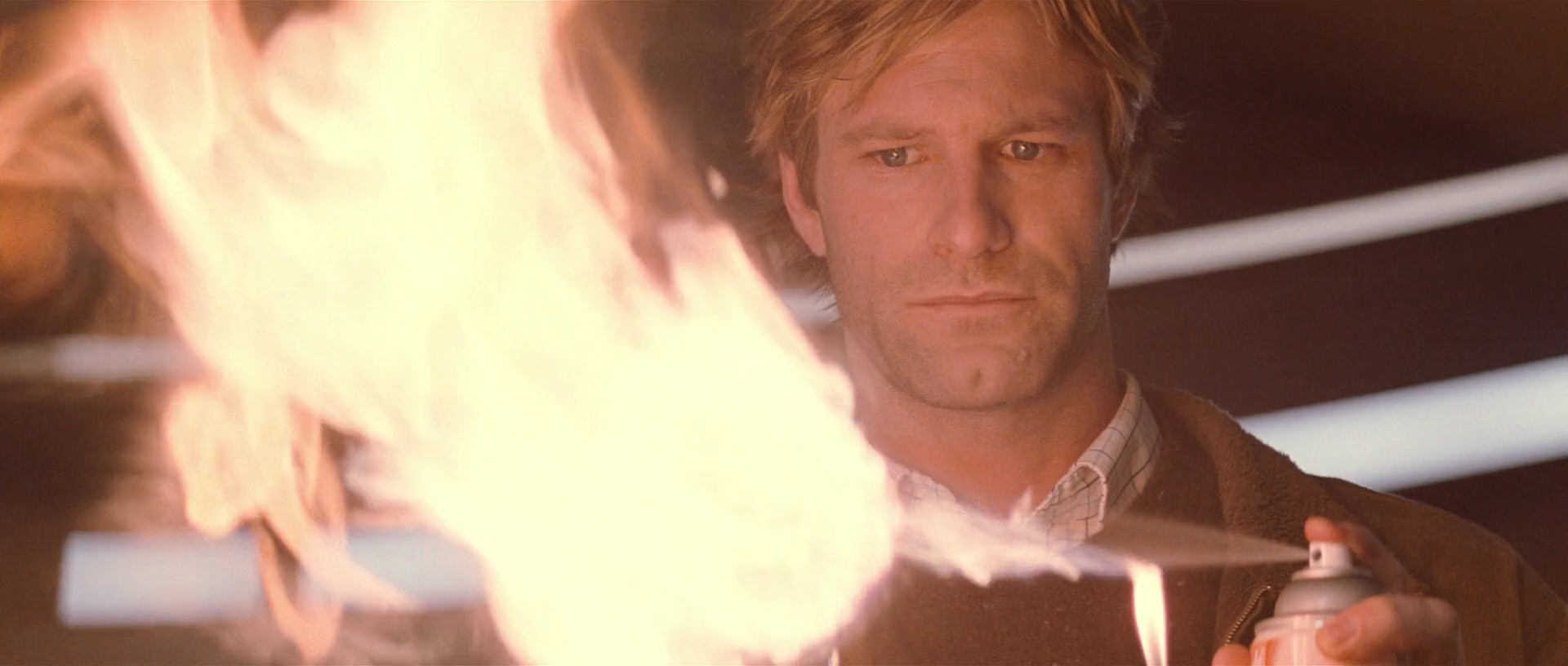 Note: At one point Josh gives a demonstration of the gravity of their situation by burning a peach in front of government officials and military brass, illustrating what would occur if the Earth’s Electromatic Field collapsed because, apparently, simply saying that we will all burn to a crisp wouldn’t sell the point so he had to dumb it down as if he were addressing preschoolers.
Note: At one point Josh gives a demonstration of the gravity of their situation by burning a peach in front of government officials and military brass, illustrating what would occur if the Earth’s Electromatic Field collapsed because, apparently, simply saying that we will all burn to a crisp wouldn’t sell the point so he had to dumb it down as if he were addressing preschoolers.
The team consists of nuclear weapons specialist Dr. Serge Leveque (Tchéky Karyo) and Earth specialist Dr. Conrad Zimsky (Stanley Tucci), who was the designer of something called Project "DESTINI" (Deep Earth Seismic Trigger INItiative) an earthquake-making weapon whose testing was responsible for the core stopping in the first place, next we have Dr. Edward "Braz" Brazzelton (Delroy Lindo) the designer of Virgil, which will be the craft that takes them to the Earth’s core and he also came up with the ultrasonic lasers that will allow the ship to pass through solid rock. Then we have Theodore Donald "Rat" Finch (DJ Qualls) a computer hacker who is brought into “Hack the Planet” so as to control the flow of information on the Internet to prevent public panic. Next, we have NASA astronaut Rebecca "Beck" Childs (Hilary Swank), who pulled off an insane emergency landing with the Space Shuttle due to the electromagnetic disturbances messing with their navigational information, and finally, we have Commander Robert "Bob" Iverson (Bruce Greenwood) who is here to provide lots of stoic learning moments for Beck, such as “You’re used to winning and you’re not a leader until you’ve lost” which doesn’t make a lot of sense but Bruce Greenwood manages to sell it. I bet he's a big fan of The Kobayashi Maru.
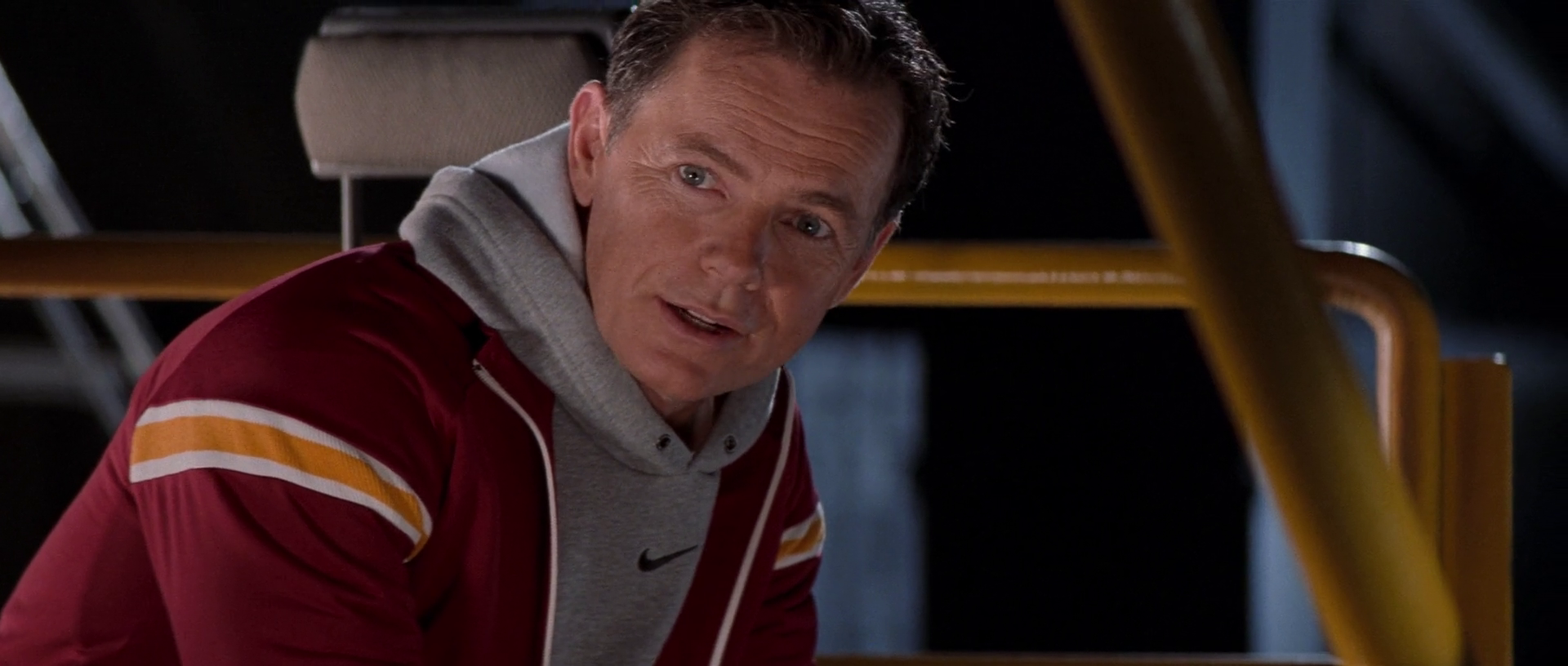 “I’m going to die so you can prove you’re ready, aren't I?”
“I’m going to die so you can prove you’re ready, aren't I?”
One of the film's strengths is its well-rounded cast of characters, each with their own unique motivations and personalities. Aaron Eckhart delivers a solid performance as the stoic and determined team leader while Hilary Swank brings emotional depth to her role as the team's co-pilot. Stanley Tucci provides much-needed comic relief as the pompous scientist who tries to take credit for other people’s work and these moments of levity are important for a film with such a ridiculous premise because it lets the audience know that the filmmaker’s viewpoint was basically “We aren’t taking this seriously either, so let’s have some fun.” So during the film’s 214-minute running time, we will get a lot of comic banter among our crew of oddball heroes, banter that will be broken up by the occasional disaster sequence, just so we don’t forget what the stakes are.
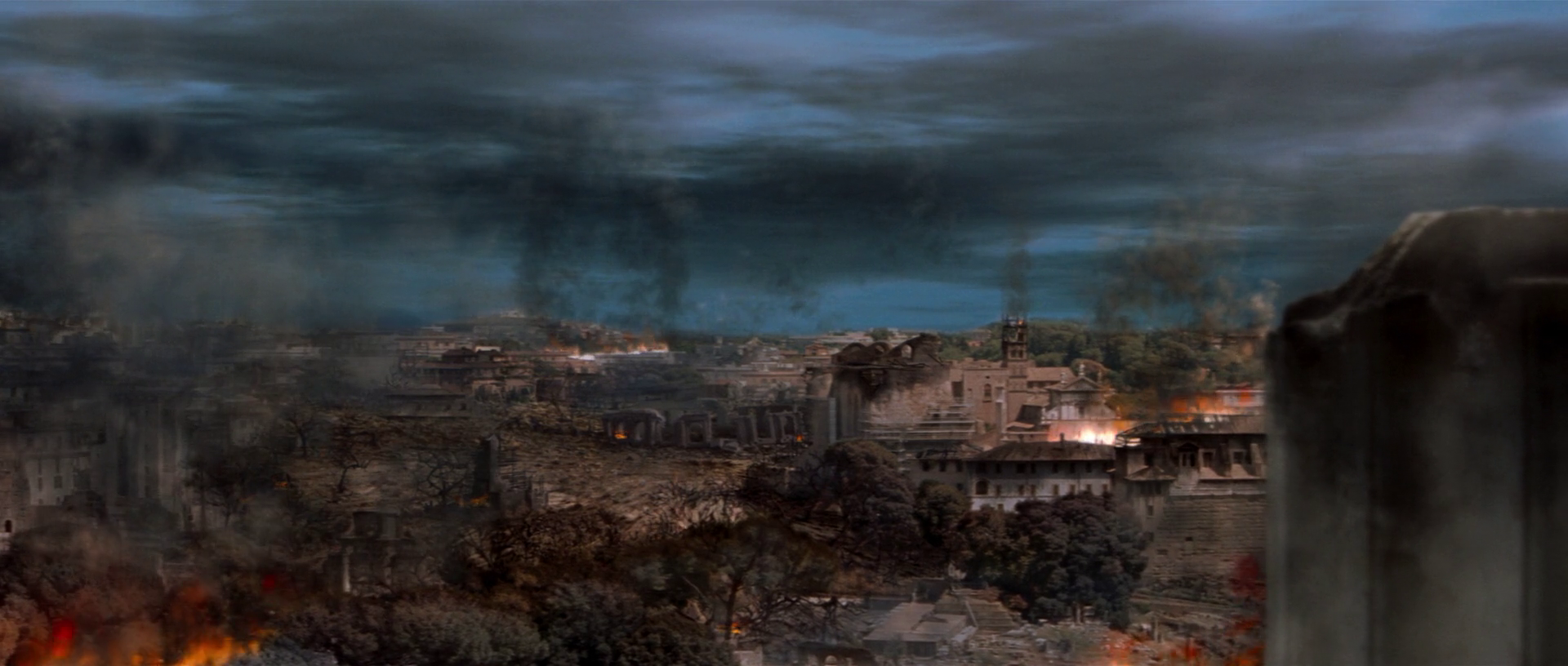 All storms lead to Rome.
All storms lead to Rome.
Even if you are able to let slide the complete ridiculousness of the film’s insane premise you still have to deal with some even dumber moments of “science” such as when the team accidentally drills through a gigantic empty geode structure and they are forced to traverse outside the ship to free the vessel from these crystalline structures, and one must ask "Why aren’t they instantly crushed by the intense pressure?" We do get Josh calmly stating “Good news, the suits can take the pressure” but how is this possible? The hull of the Virgil was made from this magical metal unobtanium and is designed to get stronger as the pressure gets higher but when our heroes step out of the ship, leaving the safety of the unobtanium, they would be experiencing 800,000 PSI and should be flattened like a grape under a hydraulic press. So to solve this problem the writers gave Aaron Eckhart a line that was nothing more than magical handwaving and made not one lick of sense.
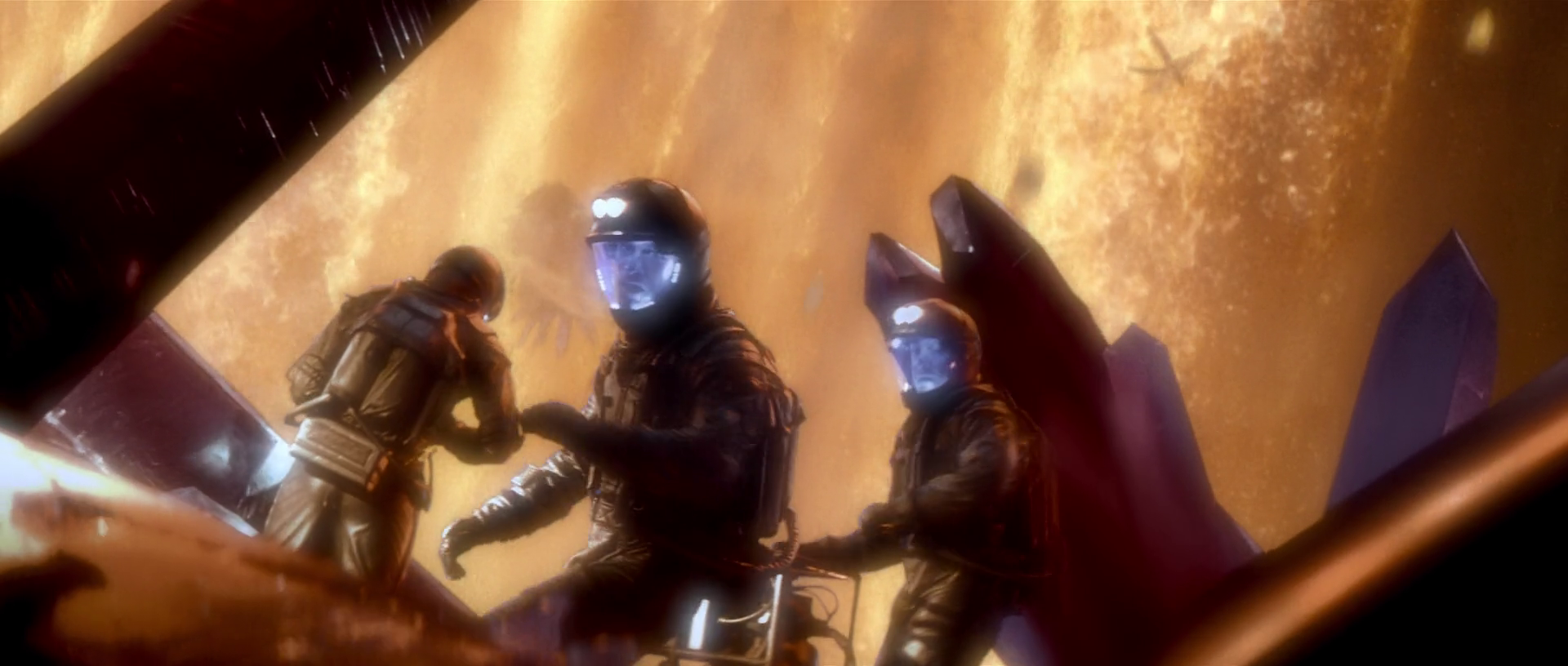 “We’re here to make Michael Bay’s Armageddon look sensible by comparison.”
“We’re here to make Michael Bay’s Armageddon look sensible by comparison.”
The special effects teams for The Core pulled out all stops to make this a visually exciting film, and the trip down through the Earth’s mantle is quite remarkable, it’s just a shame that their work was in service of a fairly dodgy script, one loaded with almost every disaster movie cliché in the book. Despite the film's impressive use of science to explain its premise, which the writers tried really hard to make sound plausible, they still took great liberties with scientific accuracy in order to create an entertaining disaster movie. Here are some of the most notable scientific inaccuracies in the film.
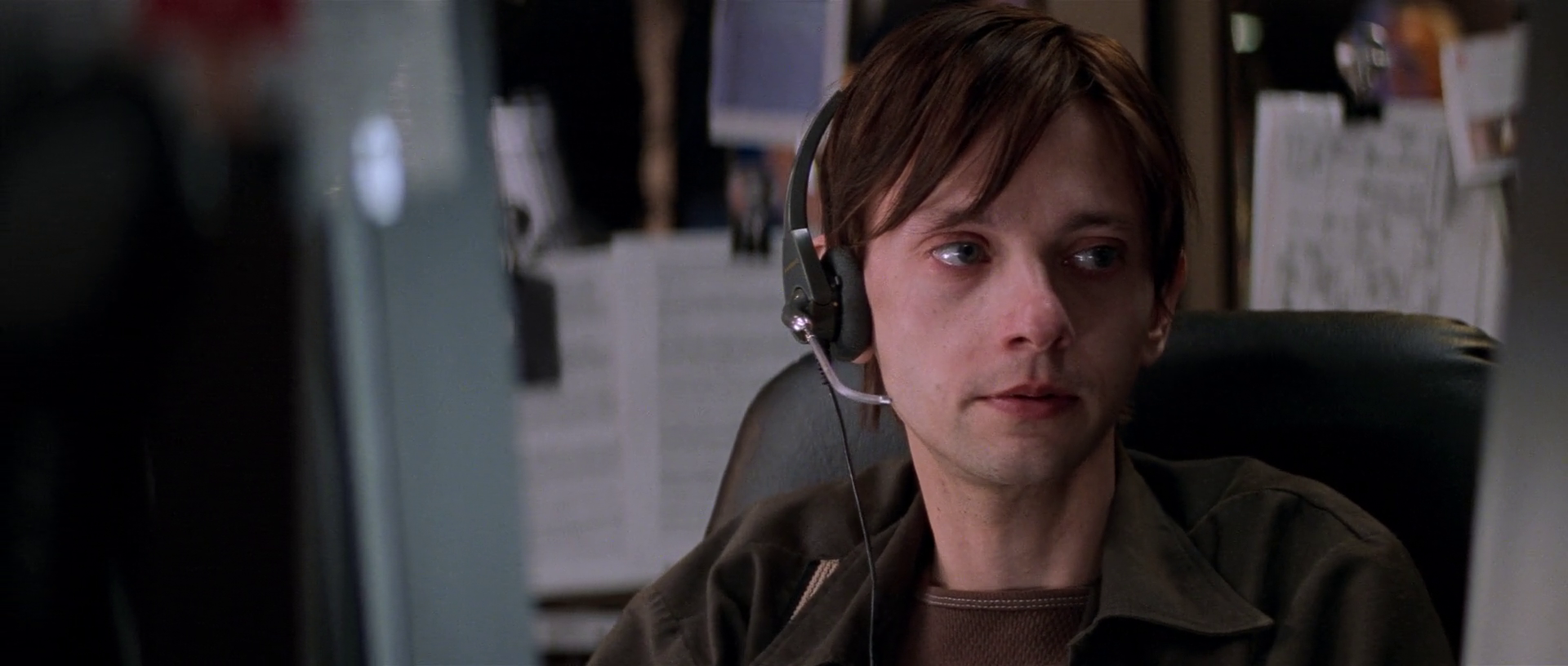 "Hey, could someone fact-check this script?"
"Hey, could someone fact-check this script?"
• The premise of the Earth's core stopping its rotation is physically impossible, as the rotation of the core is directly linked to the rotation of the Earth. If the core were to stop rotating, the entire planet would come to a halt.
• A small EMP device could not stop the core's rotation, no more than a fan could dissolve a thunderstorm. While nuclear reactions can produce a tremendous amount of energy they could not generate enough heat to restart the core, let alone do so without causing catastrophic damage to the planet.
• The team's journey to the center of the Earth involves drilling through solid rock, which would require temperatures and pressures far beyond what current technology can handle, even if they’d developed something as miraculous as unobtanium.
• The Earth's magnetic field is depicted as being caused solely by the rotation of the core when in reality, it is also influenced by the movement of charged particles in the Earth's atmosphere and the solar wind.
• The existence of a massive geode in the Earth's mantle, as depicted in this film, is highly unlikely, as geodes typically form in volcanic rock not deep within the Earth's mantle.
• That Mission Control can monitor and even remain in contact with the crew of the Virgil while they are deep within the Earth’s mantle is the cherry on top of the ridiculous science on display in this movie.
• During the Golden Gate Bridge scene the microwave energy is seen melting through several feet of galvanized carbon steel wire and the bridge beams themselves, but somehow the 2mm of metal of the car's body shell is fine as well as the car windows remain fine.
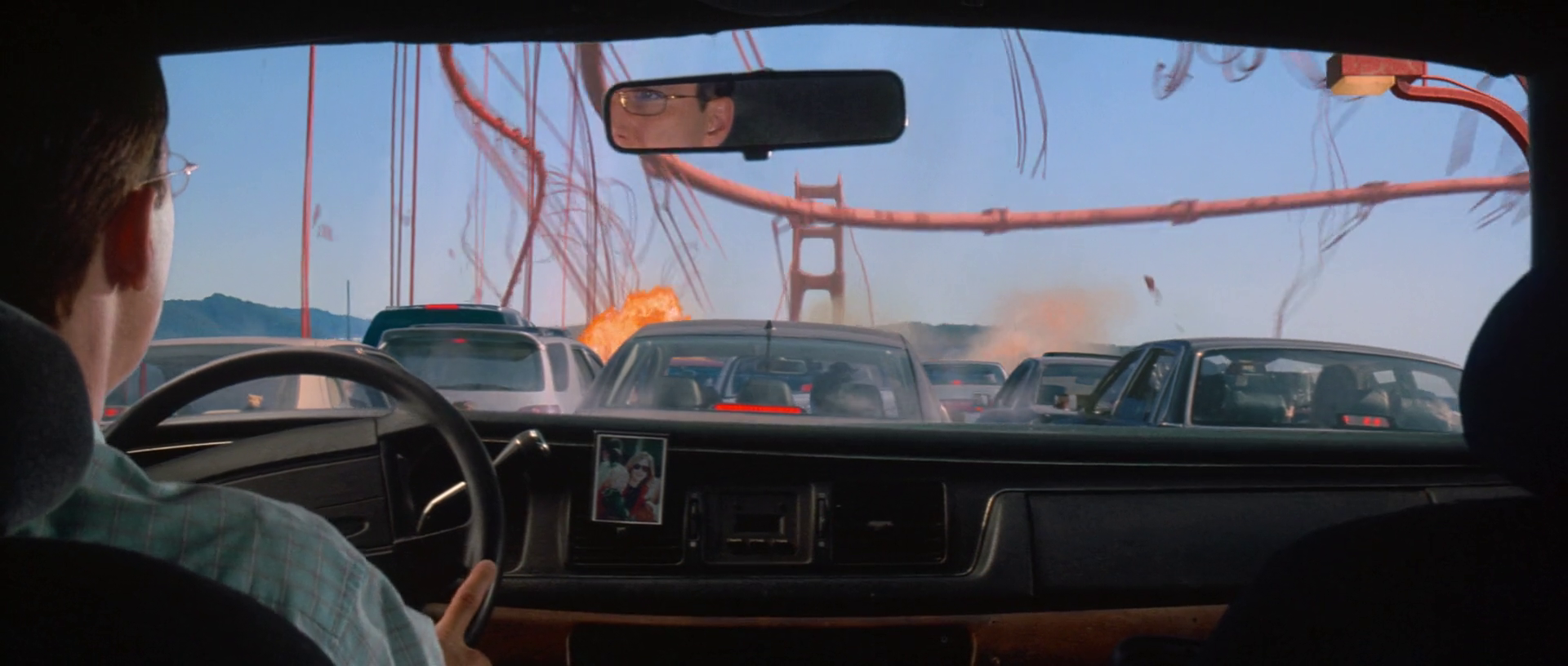 The Golden Gate Bridge must be one of the most destroyed landmarks in film.
The Golden Gate Bridge must be one of the most destroyed landmarks in film.
Overall, The Core is an enjoyable and entertaining film that offers a refreshing take on the disaster genre, with our heroes burrowing towards the center of the Earth to save the day, and while it may not be the most scientifically accurate, which by this I mean not at all, and while it is lite on big spectacular disasters set pieces – we only really get two notable ones – the film still manages to deliver on its promise of thrilling action and adventure, basically, fans of disaster films will likely find this entry to be a satisfying and entertaining watch, as long as you don’t try and take much of anything you see on screen seriously.
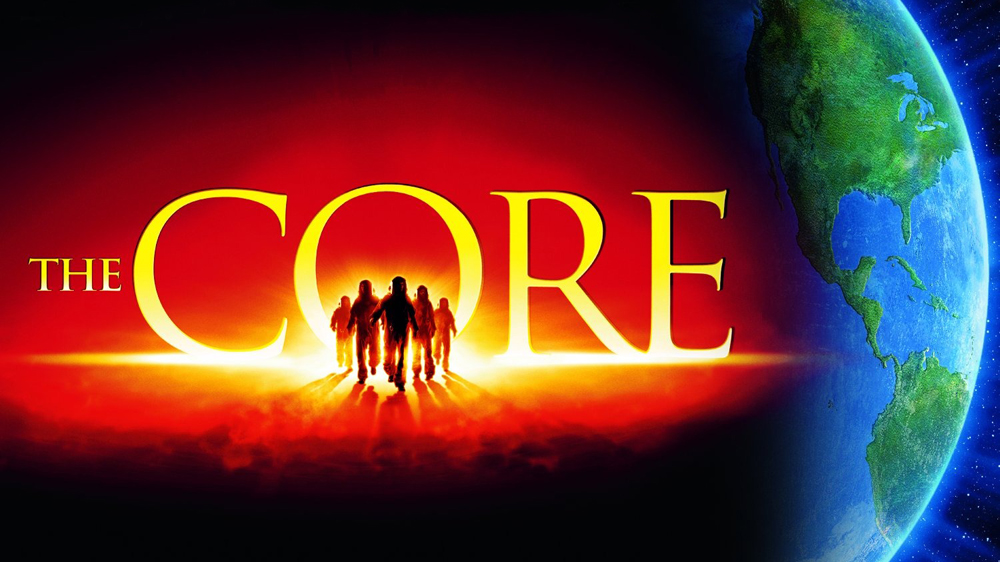
No comments:
Post a Comment